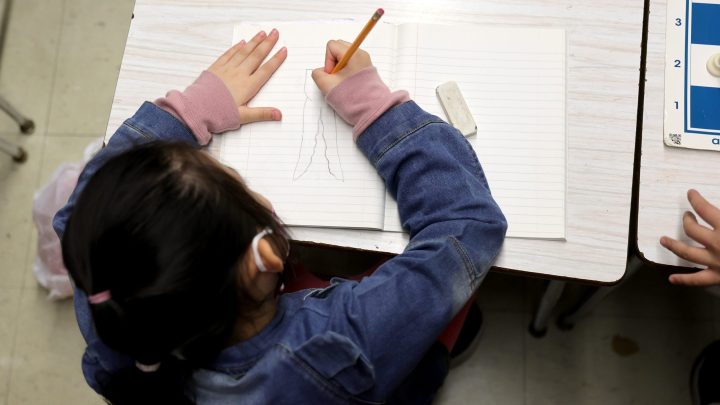
Some districts are trying year-round school to alleviate learning loss
Some districts are trying year-round school to alleviate learning loss

We’re getting closer to summer, but not every school in the United States is planning for a monthslong summer break. About 3% of public schools in this country are on a year-round schedule, and now more are considering it.
Philadelphia, one of the country’s biggest districts, is planning to pilot year-round and extended day learning in a handful of schools. It’s a strategy to deal with learning loss. Florida is also looking to try it out. But having some students work when others are not comes with challenges both societal and economic.
Year-round school is generally the same 180 days of class time, just distributed differently, said David Hornak, who leads the National Association for Year-Round Education and is superintendent of Holt Public Schools in Michigan. Most schools in his district are on a year-round schedule.
“We start in August, take a week off in October, take a full week off at Thanksgiving, your typical two in December, early January,” with, give or take, a six-week summer, he said.
Hornak ticked off the advantages: Teachers have more breaks to recharge, kids who rely on school meals can get them more steadily, and kids have chances to come in for extra academic help when class is not in session without waiting for summer school.
“We tend to say to a student who may be starting to struggle in October, ‘We’ll make it up to you in the summer.’ And that is, it’s not fair to the student,” he said.
There’s an idea that year-round schooling prevents what educators call “summer melt”: forgetting fractions or nouns over the summer.
Melt can happen during every break, said Katy Rouse, an economics professor at Elon University who has studied these schedules.
“A day out of school is a day out of school,” Rouse said. She noted the year-round schedule is sometimes used to deal with overcrowding, where districts will rotate kids in and out so the same building is in use 12 months of the year.
“The biggest cost saving would be you don’t have to build a new school to accommodate growth, right?” Rouse said.
It can also be harder to find sustained child care outside of summer break, said Oregon State economics professor Paul Thompson.
“I think it’s more difficult when you’re like, ‘We need child care year-round or during these very small pockets of time,'” Thompson said.
But Hornak suggested that with the learning loss we’ve seen during the pandemic, now’s the time to try this schedule, provide extra lessons during breaks and give kids a chance to catch up.
There’s a lot happening in the world. Through it all, Marketplace is here for you.
You rely on Marketplace to break down the world’s events and tell you how it affects you in a fact-based, approachable way. We rely on your financial support to keep making that possible.
Your donation today powers the independent journalism that you rely on. For just $5/month, you can help sustain Marketplace so we can keep reporting on the things that matter to you.

















